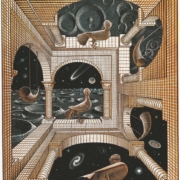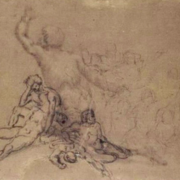On Psychological virtuality and its hazards: Hikikomori and virtual object relations
Abstract
The brain is continuously building virtual representations that allow mental simulation and anticipation of likely actions. These representations and the imaginary worlds are two different matters, since representations are constantly connecting with information from the organs of sense permitting therefore an adaptation to reality. This connection may be interrupted in two ways. The first is by cutting all ties between the representations of expectations and the experience feedback. The subject then lives on hold, deprived of projects and future plans. This is the Hikikomori phenomenon, which is independent from the screens. The second is by ignoring sensory information and considering the world to be such as we anticipate it. The subject then would only accept the other in the prospect of the expectations he has of him. It is no longer just a psychological virtual object relation (or VOR) that is constantly changed by sensory information. His relationship to the other becomes virtual. This is what we have called VRO, a “virtual relationship to an object”. Although this is independent from the use of a screen, the mediation of a digital interface considerably increases the risk.




